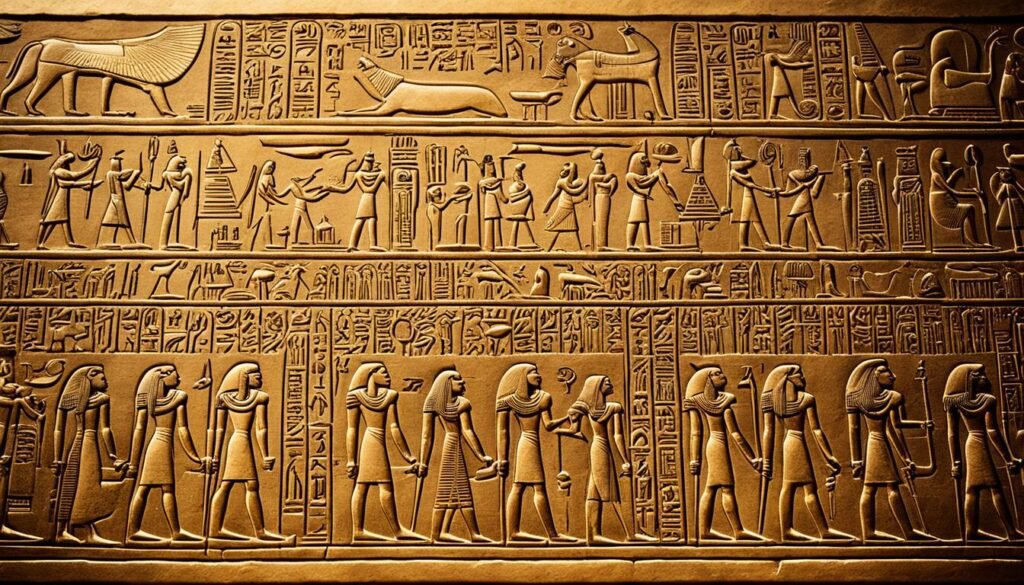Oxford University is a renowned institution that has stood the test of time, embodying a rich tradition of academic excellence and fostering a spirit of exploration. For centuries, this prestigious university has been at the forefront of cultural evolution, shaping intellectual discourse and nurturing the minds of countless scholars.
Founded in the 12th century, Oxford University holds the distinction of being the oldest university in the English-speaking world. Throughout its storied history, the university has produced exceptional alumni, including prime ministers, Nobel laureates, and literary giants who have left an indelible mark on the world.
What sets Oxford apart is its unique college system, which cultivates an environment of collaboration, competition, and intellectual pursuit. Students have the opportunity to engage in vibrant academic discussions, pushing the boundaries of knowledge and challenging conventional wisdom.
Furthermore, the close interaction between the university and the city of Oxford creates a dynamic synergy. The city itself is steeped in history and culture, with architectural marvels and a rich tapestry of stories. This symbiotic relationship fuels both Oxford’s global reputation and the local community spirit, fostering a sense of pride and camaraderie.
Oxford University has consistently been at the forefront of global research and education. The institution’s commitment to scientific discoveries and advancements in fields such as medicine and technology has made a significant impact on society. It collaborates with businesses and international organizations to tackle pressing global challenges, demonstrating its dedication to addressing issues that affect us all.
While Oxford’s legacy is undeniably impressive, it is not without its challenges and controversies. The university grapples with issues of diversity and access to education, striving to create a more inclusive and equitable environment. The ongoing evolution of Oxford is a testament to its resilience and commitment to progress.
From its humble origins to its present-day stature, Oxford University continues to serve as a model for Christian education, seamlessly integrating faith and scholarship. It has nurtured influential scholars and leaders who have made significant contributions to theology and academia.
The enduring legacy of individuals like Wilfred Owen, a renowned poet of the First World War, and Elizabeth Frood, an Egyptologist who overcame physical challenges to conduct fieldwork, speaks to Oxford’s commitment to accessible research and commemoration. These individuals exemplify the university’s dedication to exploring new frontiers and honoring the past.
Oxford University is a beacon of tradition and excellence, shaping the minds of tomorrow’s leaders, while pushing the boundaries of knowledge today. With its remarkable history, commitment to global research, and steadfast dedication to progress, Oxford remains an institution of unparalleled distinction.
Key Takeaways:
- Oxford University is the oldest university in the English-speaking world, founded in the 12th century.
- The university’s college system fosters a unique environment of collaboration, competition, and intellectual pursuit.
- Oxford’s interaction with the city of Oxford creates a dynamic synergy that fuels its global reputation and local community spirit.
- Oxford University is at the forefront of global research and education, contributing to scientific discoveries and addressing pressing global challenges.
- The university grapples with challenges and controversies, striving to create a more inclusive and equitable educational environment.
- Oxford University integrates faith and scholarship, making significant contributions to Christian education.
- Individuals like Wilfred Owen and Elizabeth Frood exemplify Oxford’s commitment to accessible research and commemoration.
A City Steeped in History and Culture
Oxford is not just a university but also a city steeped in history and culture. It is a place where the past comes alive, and the present is shaped by a rich heritage. From its cobbled streets to its iconic architectural marvels, Oxford tells the story of centuries of intellectual pursuit, artistic expression, and human endeavor.
Walking through the city, one can’t help but be captivated by the grandeur of its buildings and the sense of history that permeates the air. Oxford, known as the “City of Dreaming Spires,” boasts a tapestry of architectural styles, ranging from the ancient Saxon towers of St. Michael’s Church to the Gothic splendor of the Bodleian Library. Each building is not just a physical structure but a testament to the cultural evolution and intellectual legacy that defines Oxford.
Oxford is a city where architecture whispers stories of the past, inviting visitors to immerse themselves in its rich history and culture.
The streets of Oxford have witnessed key historical events, intellectual movements, and everyday moments of human achievement. From the scholarly debates that took place in the halls of the university to the pulsating energy of the Cowley Road Carnival, the city’s vibrant culture is embedded in its every nook and cranny.
The University of Oxford and the city have always been closely intertwined, with the former playing a central role in the latter’s development. This dynamic relationship has resulted in a unique and thriving community that cherishes both its global reputation and its local spirit. Oxford truly exemplifies how a city can grow and evolve alongside its prestigious university.
One cannot mention Oxford without acknowledging the crown jewel of its architectural wonders: the Bodleian Library. With its distinguished facade and extensive collection, the library stands as a testament to the city’s love for knowledge and intellectual exploration. It has served as a haven for scholars, a source of inspiration for writers, and a symbol of Oxford’s commitment to preserving and disseminating knowledge.
Architectural Marvels in Oxford
Below is a table highlighting some of the architectural marvels that grace the city of Oxford:
| Building | Architectural Style | Significance |
|---|---|---|
| Christ Church Cathedral | Norman and Gothic | One of the smallest cathedrals in England |
| Radcliffe Camera | Neoclassical | Home to the Radcliffe Science Library |
| Carfax Tower | Medieval | Offers panoramic views of Oxford |
| Ashmolean Museum | Neoclassical and Victorian Gothic Revival | The world’s first university museum |
The architectural wonders of Oxford stand as a testament to the city’s rich history and cultural significance. They inspire awe, spark curiosity, and invite visitors to immerse themselves in a world where the past and present converge. Whether it’s exploring the ancient streets or delving into the intellectual legacy of the Bodleian Library, Oxford captivates the imagination and leaves an indelible mark on all who encounter its architectural marvels.
At the Forefront of Global Research and Education

Oxford University is renowned for its commitment to advancing global research and education. With a strong focus on medicine and technology, Oxford’s research departments and colleges collaborate with businesses and international organizations to tackle pressing global challenges. Through groundbreaking scientific discoveries and innovative educational programs, Oxford pioneers advancements that shape the world we live in.
Pushing the Boundaries of Medicine
Oxford’s medical research is at the forefront of cutting-edge discoveries and breakthroughs. Researchers and clinicians work together to develop innovative treatments, improve patient care, and combat global health crises. From groundbreaking studies in genetics and neurology to advancements in personalized medicine and precision therapies, Oxford’s dedication to medical research is transforming healthcare on a global scale.
Leading the Way in Technological Advancements
Oxford University is a hub of technological innovation, driving advancements in various fields. The university’s research in artificial intelligence, robotics, and quantum computing is pushing the boundaries of what’s possible. These breakthroughs have far-reaching implications across industries, from revolutionizing transportation and energy systems to enhancing communication and optimizing data analysis.
“Oxford’s research in medicine and technology is revolutionizing healthcare and driving advancements that shape the world we live in.”
Nurturing the Next Generation of Innovators
Education is a cornerstone of Oxford’s mission. The university provides top-tier educational programs that equip students with the skills, knowledge, and critical thinking abilities to become future leaders and innovators. By fostering an environment that encourages curiosity, creativity, and collaboration, Oxford prepares students to tackle the complex challenges of a rapidly evolving world.
Addressing Global Challenges Head-On
Oxford’s commitment to global engagement extends beyond research and education. The university actively addresses pressing global challenges such as disease, climate change, and inequality. By collaborating with international organizations and businesses, Oxford leverages its expertise and resources to make a tangible and positive impact on a global scale.
Through its pioneering research, dedication to education, and commitment to addressing global challenges, Oxford University maintains its position at the forefront of global research and education. As the world continues to evolve, Oxford’s pursuit of excellence ensures its continued relevance in shaping the future.
Challenges and Controversies

Oxford University, despite its esteemed reputation, is not immune to criticism or controversy. The institution faces ongoing debates surrounding diversity, access to education, and the relevance of traditional practices in a modern context. These discussions highlight the university’s commitment to addressing societal issues and fostering progress.
One of the major areas of critique is the issue of diversity. As a historically prestigious institution, Oxford has faced scrutiny regarding the representation and inclusion of marginalized groups within its student body and faculty. Efforts have been made to increase diversity, with initiatives focused on widening access to education and creating a more inclusive environment for underrepresented communities.
Access to education is another contentious topic surrounding Oxford University. Critics argue that the university’s admissions process may perpetuate inequality by favoring applicants from privileged backgrounds. Advocates for equal access believe that the institution should prioritize recruiting students from diverse socioeconomic backgrounds, ensuring that talented individuals from all walks of life have the opportunity to study at Oxford.
The controversy surrounding traditional practices often centers on the question of their relevance in today’s rapidly evolving world. Critics argue that certain aspects of Oxford’s traditions can perpetuate elitism and hinder progress. Supporters of tradition contend that these practices contribute to the unique academic and cultural environment of the university, preserving a rich heritage that should not be abandoned.
“Oxford’s challenges reflect the broader societal debates around diversity, access to education, and the tension between tradition and progress. These discussions are necessary for the continued growth and evolution of the institution.”
By engaging with criticism and controversy, Oxford University and the city of Oxford demonstrate a commitment to growth and inclusivity. These ongoing discussions shape policies and practices, ensuring that the institution remains relevant and responsive to the needs of a diverse student body and society at large.
In the face of challenges, Oxford University continues to evolve, striving to strike a balance between its rich heritage and the demand for progress in the modern world.
Oxford as a Model for Christian Education

Oxford University has played a vital role in shaping Christian education, seamlessly integrating faith and reason. Since its early days as a center of European learning, Oxford has contributed a uniquely English flavor to Christian education, fostering a rich tradition of scholarship and theological exploration.
Countless influential scholars and leaders have emerged from Oxford, making significant contributions to theology and academia. They have infused Christian education with deep-rooted values, intellectual rigor, and a commitment to spiritual growth. The university’s emphasis on critical thinking and analytical reasoning has provided a solid foundation for students to develop a holistic understanding of their faith.
“Oxford’s legacy as a hub for Christian thought and education continues to shape the global landscape of theological discourse,” says Dr. Rachel Stevens, an esteemed professor of theology at Oxford University.
At Oxford, Christian education goes beyond the mere transmission of knowledge. The university encourages students to examine their faith critically, engaging with diverse perspectives and fostering an environment of respectful dialogue. This emphasis on intellectual exploration allows individuals to develop a deep and informed understanding of their beliefs.
The synergy between faith and scholarship at Oxford is evident in the various theological colleges and programs offered. Students have the opportunity to study topics ranging from biblical studies and historical theology to spirituality and worship. This comprehensive approach equips them with the knowledge and skills necessary to navigate the complexities of the modern world.
Exploring Faith and Reason: The Intersection of Scholarship and Spirituality
One of the distinctive aspects of Christian education at Oxford is the integration of rigorous academic scholarship with spiritual development. Students are encouraged to not only deepen their faith intellectually but also to seek its practical application in their daily lives. The university provides a supportive community where students can openly explore questions of faith and engage in theological reflection.
As Catholic scholar Dr. Elizabeth Andrews explains, “Oxford offers a unique space where students can engage deeply with their Christian faith, while simultaneously being challenged to critically analyze it. This interplay between faith and scholarship enables individuals to develop a nuanced understanding of their beliefs and cultivate a vibrant intellectual life.”
This holistic approach to Christian education fosters a deep sense of purpose and empowers students to make a positive impact in their communities and the wider world. The Oxford experience encourages students to bridge the gap between theory and practice, equipping them to become compassionate leaders who apply their faith intelligently in various vocations.
Oxford’s Contribution to Christian Education
| Contributions | Impact |
|---|---|
| Theological scholarship | Advancements in academic theology, shaping contemporary theological discourse. |
| Moral philosophy | Exploration of ethical frameworks and the interplay between faith and ethics. |
| Interfaith dialogue | Promotion of understanding and collaboration between different religious traditions. |
| Mission and evangelism | Equipping graduates to share their faith with intellectual depth and cultural sensitivity. |
Oxford’s commitment to Christian education continues to foster a vibrant community of scholars, theologians, and students who seek to deepen their understanding of faith and engage with the broader world around them. The university’s legacy as a model for Christian education remains an inspiration for institutions and individuals worldwide, blending academic rigor, spiritual growth, and a passion for intellectual exploration.
The Enduring Legacy of Wilfred Owen

Wilfred Owen, a renowned poet of the First World War, has left an indelible mark on the literary landscape as a powerful voice of futility, suffering, and the harsh realities of war. Born on March 18, 1893, in Oswestry, Shropshire, England, Owen was deeply influenced by his experiences as a soldier in the war, drawing inspiration from the front lines of battle to create poignant and evocative poetry.
Owen’s poems eloquently depict the devastating effects of warfare on the human spirit, exploring themes of disillusionment, loss, and the brutal nature of conflict. His deeply personal verses reveal the psychological toll of war, illuminating the suffering endured by countless soldiers. Through his words, Owen captures the sense of helplessness and the futility of sacrificing lives in the pursuit of victory.
Despite his short life tragically cut short at the age of 25, Owen’s impact on the literary world and the understanding of war remains significant. He is hailed as one of the greatest war poets of his time, with works such as “Anthem for Doomed Youth” and “Dulce et Decorum Est” resonating with audiences long after his passing.
“What passing-bells for these who die as cattle?
Only the monstrous anger of the guns.
Only the stuttering rifles’ rapid rattle
Can patter out their hasty orisons.”
Owen’s Lasting Influence
Owen’s work has transcended time and continues to serve as a powerful reminder of the horrors of war. It has inspired subsequent generations of poets, writers, and artists, prompting reflection on the true cost of armed conflict. Through his poignant verses, Owen has become synonymous with the anti-war sentiment, forcing society to confront uncomfortable truths about the human condition.
The enduring legacy of Wilfred Owen serves as a stark reminder of the sacrifices made by soldiers and the lasting impact of war on those who experience it firsthand. His poetry stands as a testament to the power of artistic expression in conveying the realities of the battlefield and igniting a collective desire for peace and understanding.
| Poem | Theme | Significance |
|---|---|---|
| “Dulce et Decorum Est” | Futility of war | Exposes the lie that war is glorious and honored |
| “Anthem for Doomed Youth” | Suffering and loss | Highlights the inescapable tragedy experienced by soldiers |
| “Strange Meeting” | Humanity’s universal connection | Explores the humanity shared by enemies on the battlefield |
Wilfred Owen’s enduring impact on the literary world continues to resonate, ensuring that the voices of those who endure the futility and suffering of war are never forgotten.
The Re-Imagining Cole Symposium

The Re-Imagining Cole Symposium brought together academics, historians, students, and members of the community to explore the representation of Christian Frederick Cole, the first Black African student to graduate from Oxford University. This groundbreaking event delved into the broader issue of race and representation in art, initiating crucial discussions about racial equality and the reinforcement of stereotypes.
The symposium aimed to challenge prevailing narratives and confront the lack of diverse perspectives in art, addressing the vital need for authentic representation. By re-imagining Cole’s image, the symposium aimed to rectify historical omissions and shed light on the underrepresented contributions of individuals from diverse backgrounds.
“Representation matters. It is not merely about an individual, but how broader social narratives are shaped and perpetuated through art. The symposium offers an opportunity to critically examine the impact of these narratives and work towards a more inclusive future.” – Dr. Emily Clarke, Art Historian
The event featured thought-provoking panel discussions, presentations, and interactive workshops, enabling participants to delve into the complexities of race and representation in both historical and contemporary contexts. Scholars presented research on the historical representation of marginalized communities, while artists and activists shared their perspectives on challenges and opportunities for representing diverse experiences.
One of the key themes explored was the power of art to challenge stereotypes, dismantle systemic racism, and foster empathy. By re-imagining Cole’s image, the symposium aimed to inspire new artistic interpretations that reflect his true essence and highlight his groundbreaking achievement within the context of racial equality.
The Re-Imagining Cole Symposium served as a catalyst for change, spurring ongoing conversations, collaborations, and creative works that challenge the status quo and strive for a more inclusive and equitable art world.
Key Outcomes of the Re-Imagining Cole Symposium:
- A renewed commitment to promoting racial equality and representation in art.
- Encouragement for artists and curators to critically examine their work and challenge prevailing narratives.
- Collaborative projects between universities, museums, and artists to create inclusive exhibitions and collections.
- Increased awareness and recognition of the contributions of underrepresented artists and historical figures.
| Benefits of the Re-Imagining Cole Symposium |
|---|
|
By examining the legacy of Christian Frederick Cole and addressing the broader issues of race and representation in art, the Re-Imagining Cole Symposium served as a significant step towards a more inclusive and equitable art world. Through ongoing dialogue, collaboration, and action, the symposium’s impact continues to shape the future of art and encourage meaningful change on a global scale.
Accessible Fieldwork in Egypt

An Egyptologist’s determination and resilience transcend physical limitations, enabling them to embark on extraordinary fieldwork despite disabilities. Elizabeth Frood, a dedicated Egyptologist, overcame significant challenges to conduct her research in the captivating land of Egypt. Despite losing both her legs below the knee and the function in her hands, Frood displayed remarkable ingenuity and perseverance, finding ingenious ways to continue her scholarly exploration.
Frood’s fieldwork focused on the study and documentation of ancient graffiti at the awe-inspiring temple complex in Karnak, Luxor. Through her innovative approaches and adaptation techniques, she conquered the accessibility obstacles posed by the rugged terrain and ancient structures. By utilizing specially designed tools and employing assistive technology, Frood succeeded in accessing and meticulously recording the intricate details of the graffiti.
This groundbreaking research contributed to a deeper understanding of the expressions and stories captured in the ancient graffiti, shedding light on the lives of individuals who lived in a specific time and place. Frood’s work serves as a testament to the power of determination and the indomitable spirit of Egyptologists, showcasing their unwavering dedication to expanding knowledge and unraveling the mysteries of the past.
“Through my research, I aim to give a voice to those who have long been silenced by the ravages of time. Disabilities should never hinder intellectual pursuit or fieldwork. With the right tools and support, we can overcome the barriers and continue our exploration of Egypt’s rich cultural heritage.”
Frood’s inspiring journey serves as an inspiration not only to aspiring Egyptologists but to individuals facing disabilities worldwide. Her unwavering passion, resourcefulness, and commitment to her field demonstrate that the pursuit of knowledge knows no limitations.
Egypt’s Cultural Tapestry – A Glimpse into the Past
To comprehend the significance of Frood’s accessible fieldwork in Egypt, it is essential to appreciate the country’s fascinating cultural tapestry. Egypt’s ancient civilization, spanning thousands of years, has left behind an extraordinary legacy of art, architecture, and written records. From the colossal pyramids of Giza to the intricately decorated tombs in the Valley of the Kings, Egypt offers a captivating insight into an ancient world.
| Significance | Keywords |
|---|---|
| Data Collection | Archaeological surveys, ancient inscriptions, historical artifacts |
| Research Focus | Religious practices, society and culture, pharaohs and dynasties |
| Exploratory Techniques | Excavations, photogrammetry, radiocarbon dating, 3D modeling |
| Collaborations | Egyptian Ministry of Antiquities, international research teams |
Access to accurate and comprehensive data from the field is invaluable for preserving and understanding Egypt’s rich historical heritage. Egyptologists, like Elizabeth Frood, play a pivotal role in unraveling the mysteries of this ancient civilization, contributing to the broader tapestry of human history.
Commemorating the Last Days of Wilfred Owen

To commemorate the centenary of the last days of Wilfred Owen, the University of Oxford’s Faculty of English is undertaking a special initiative. Utilizing the power of social media, the faculty will be sharing a daily tweet account of Owen’s final fortnight. This project aims to shed light on the invaluable online resources available on Owen and other war poets, including podcasts, manuscripts, letters, and film clips. By presenting snippets of Owen’s journey during his last days, the faculty hopes to engage a wider audience with his impactful poetry and bring attention to the historical significance of the First World War.
This commemorative endeavor serves as a reminder of the profound impact that Owen’s poetry had on capturing the essence of the First World War. His powerful and evocative verses conveyed the futility, suffering, and emotional turmoil experienced by the soldiers. As the centenary of his last days approaches, it is an opportune time to reflect on his enduring legacy and the lasting impact of his contributions to the world of poetry.
Engaging Schools Nationwide through Competition
In addition to the daily tweets, the Faculty of English has initiated a nationwide competition for schools to participate in. The competition encourages students to delve into the legacy of Wilfred Owen and develop presentations that showcase their understanding of his poetry and its historical context. By actively involving schools, this competition aims to instill a sense of appreciation for Owen’s work among younger generations and cultivate a deeper understanding of the First World War.
“The poetry is in the pity.” – Wilfred Owen
The call for entries in the competition not only provides an opportunity for students to showcase their creativity and critical thinking skills but also promotes dialogue surrounding the impact of the war and poetry as a means of commemoration. Recognizing the importance of fostering a lasting interest in Owen’s work, the Faculty of English aims to inspire students to engage with themes of war, poetry, and historical significance.
| Commemoration Initiatives | Description |
|---|---|
| Twitter Account | A daily tweet account detailing the last fortnight of Wilfred Owen’s life |
| Nationwide Competition | A competition for schools to present work on the legacy of Wilfred Owen |
| Online Resources | Podcasts, manuscripts, letters, and film clips providing insights into war poets |
Participating in these commemorations and engaging with Owen’s work serves as a tribute not only to the poet but also to all those who experienced the First World War. It is a testament to Oxford University’s commitment to honoring and preserving historical legacies through innovative approaches that resonate with contemporary audiences. The combination of social media engagement, student participation, and online resources ensures that Wilfred Owen’s impact is not forgotten and that his poetry continues to inspire generations to come.
The University of Oxford maintains its prestigious position, solidifying its ranking as one of the top universities globally, as it has consistently done since 2023 according to the QS World University ranking. Established centuries ago, Oxford University stands as the oldest university in the English-speaking world, alongside its esteemed counterpart, the University of Cambridge. With a rich history of scholarship and contributions to humanity across various disciplines, from the humanities and social sciences to life and medical sciences, Oxford University continues to attract a diverse student body, including undergraduates and graduate students, both domestic and international. The university’s renowned Bodleian Libraries serve as a hub for research and learning, while its permanent private halls offer unique academic experiences. Among its notable alumnus are prime ministers and leaders in various fields, reflecting the university’s reputation for excellence across academic departments and divisions.
The University of Oxford, often revered as the oldest university in the world, is consistently ranked as the best university in the UK according to various university guides such as QS World University Rankings, Times Higher Education World University Rankings, and the Complete University Guide. With a rich history dating back centuries, Oxford offers a range of undergraduate and graduate courses across its academic faculties and departments, housed within its unique collegiate system. Life at Oxford is enriched by its renowned Bodleian Libraries, the largest library system in the UK, and its numerous colleges and halls, where students from diverse backgrounds come together to study and learn. The university’s esteemed teaching staff, including Nobel laureates and Oxford alumni such as British prime ministers, contribute to its reputation as a premier research university. Despite its central location in the UK, Oxford maintains a global outlook through its participation in international alliances of research universities and its collaborations with institutions worldwide. Through its history and continued excellence in teaching and research, Oxford University stands as a beacon of higher education, offering a transformative experience for students from the UK and beyond.
Also Read: Exploring Horizons: Colorado State University Educational Journey
Conclusion
Oxford University, with its rich tradition of excellence and commitment to Christian education, has established itself as a global leader in academia. Throughout its centuries-long history, it has produced influential scholars across various fields, leaving behind an enduring legacy.
Individuals like Wilfred Owen, renowned poet of the First World War, and Elizabeth Frood, the resilient Egyptologist, exemplify Oxford’s dedication to accessibility and research. Their contributions showcase the university’s commitment to inclusivity and the pursuit of knowledge, even in the face of challenges.
As Oxford commemorates the centenary of Wilfred Owen’s last days, it embraces the importance of remembering and honoring those who have shaped history. The university’s dedication to accessible research and the promotion of engagement with historical figures underscores its commitment to preserving and celebrating the past while advancing global research and education.
In conclusion, the tradition of excellence at Oxford University continues to thrive, fueled by its fruitful history, commitment to Christian education, and the remarkable individuals who have contributed to its legacy. As it embraces the future, Oxford remains a beacon of knowledge, accessibility, and intellectual achievement.
FAQs
Q: What is the significance of Oxford University?
A: Oxford University, also known as the University of Oxford, is renowned for its tradition of excellence in academia and research. It is one of the oldest and most prestigious universities in the world.
Q: Can you provide some information about the ranking of Oxford University?
A: Oxford University consistently ranks among the top universities globally, often competing for the number one spot with institutions such as the University of Cambridge. It is highly regarded for its academic excellence and research output.
Q: How many international students are currently studying at Oxford University?
A: Oxford University attracts a diverse student body, including a significant number of international students. In 2024, the university welcomed students from various parts of the world to contribute to its vibrant academic community.
Q: What is the Bodleian Library and its significance to Oxford University?
A: The Bodleian Library is one of the largest and oldest university libraries in Europe, serving as a major research and cultural hub for Oxford University. It houses a vast collection of books and manuscripts that are integral to academic pursuits.
Q: What are some notable alumni of Oxford University?
A: Oxford University boasts an impressive list of alumni, including world leaders, Nobel laureates, and influential figures in various fields. Graduates of Oxford go on to excel in their respective careers, making significant contributions to society.
Q: How is studying at Oxford University different from other universities?
A: Studying at Oxford University offers a unique educational experience characterized by personalized tutorials, rigorous academic standards, and a strong emphasis on critical thinking and independent research. The university’s rich history and vibrant academic environment set it apart from other institutions.
Q: What is the Oxford Martin School and its role within the university?
A: The Oxford Martin School is a research and policy institute within Oxford University focused on addressing global challenges through interdisciplinary collaboration. It brings together experts from various fields to find innovative solutions to complex societal issues.
Source Links
- https://papersowl.com/examples/oxford-a-closer-look-at-its-prestigious-legacy-and-modern-impact/
- https://ogs.edu/oxford-as-a-model-for-christian-education/
- https://www.ox.ac.uk/news/features?id=1096&page=58




